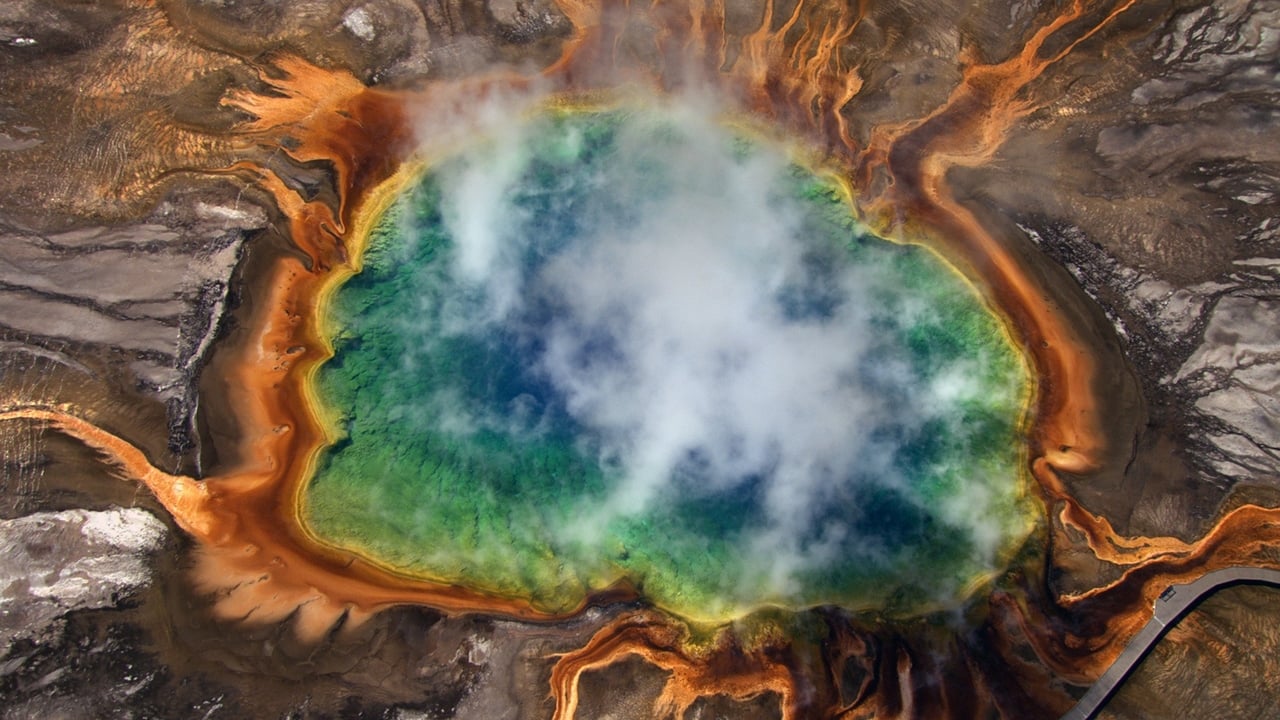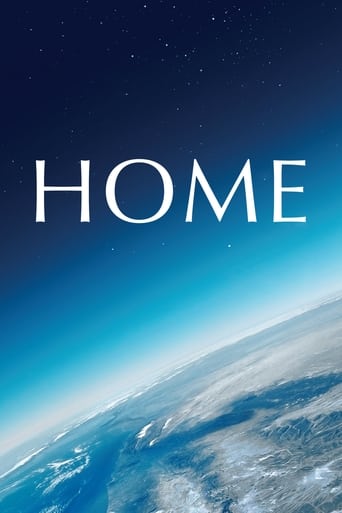



Slow pace in the most part of the movie.
What a freaking movie. So many twists and turns. Absolutely intense from start to finish.
View MoreA film of deceptively outspoken contemporary relevance, this is cinema at its most alert, alarming and alive.
View MoreExactly the movie you think it is, but not the movie you want it to be.
View MoreThere is no doubt that population is the root cause of our problems. There are no workable solutions here. We are at or near the end of one of five major ice ages. The melting of ice is going to happen with or without us. Water vapor (clouds) hold heat 1000 times more than carbon dioxide. Change in the weather occurs over and over thousands of times in the past. At times when population could not impact the climate. We are making decisions based on knowledge in weather from only the last 150 years or so. So little is known. Climate change occurs constantly and the greatest changes occur take more than a life time to monitor. Changing anything now cannot make any difference. Reducing population somehow would be the best for all the people of the world. There is more in this story than what is being told. The photography is top shelf here though.
View MoreWhen Al Gore starred in An "Inconvenient Truth", it was so shocking that he was even invited by Oprah Winfrey to give another presentation on her show. Although Gore's work in that film brought out some very ugly "truths" addressing our current state of environmental affairs, his documentary/weather-man styled message seemed a tad bit on the lines of a college lecture. Even though Gore's pie-charts, statistics and scientific data all pointed towards the stark reality of "Global Warming", it pretty much does not address other issues that go hand-in-hand with our planet's destruction. Yes, Al Gore along with director Davis Guggenheim did an exceptional public service with "An Inconvenient Truth", but that was five years ago, and the polar ice-caps are still melting at a rate of 10% a year. Today, a billion people don't have water to drink. 20% of the world's population consumes 80% of its resources. 13 million hectares of forests vanish every year. It goes on and on. But this is where Home differs. Written by Isabelle Delannoy and directed by Yann Arthus-Bertrand, this indie film is a bold and sometimes thematically brutal narration of where we came from and where we are headed. Speaking for mother Earth is Glenn Close; systematically narrating how in just two hundred thousand years of existence, humans are changing the face of a four billion year old planet. This is shown through some of the most stunning and colorfully vivid aerial footages I have ever seen of this planet we call home. For this visual impact, Arthus-Bertrand uses high-definition cameras for mostly air-borne cinematography, capturing some rare images of people and places in abstract composures framed in 50 odd countries. And while our eyes have a feast, the haunting score becomes more than just music to our ears thanks to Armand Amar's original score played by the Budapest Symphony Orchestra. Perhaps his greatest intention from capturing Earth's spectacular imagery is to lay in plain view what we have now, and what we are likely to loose in our current trend to over indulge; making what we see a haunting dream, just 15 years from now.Speaking of over indulgence, in her narration, Close boldly names a few cities that are currently at the peak of plundering the planet. New York, Las Vegas and Los Angeles (USA), Shenzhen and Beijing (China), Mumbai (India), Tokyo (Japan) and Dubai (UAE), are used as examples and are not spared as world cities caught red-handed wasting food, water and energy. But this is only the latest. The damage though severe, has been dealt by humans like slow poison throughout our 200,000 years of existence. While we scientifically search for our missing link, we dare to place ourselves on top of the food chain. In the name of survival, we may be forgiven for thinking so. But how does the planet as a whole, survive in harmonious balance without any one species assuming superiority over all others? How profound is the thought that we as a species are actually the weakest link in the chain of a four billion year old evolution? That alone raises further questions as to whether or not we are really self-sufficient or whether we are evolving from hunters and nomads into explorers and conquerors being that humans are the only species with a will to dominate. Before showing how some countries are working at repairing the damage, the film really drives the message home with some more frightening questions. In just 15 years, can we undo what we have done in the last 200,000 years? In just 15 years, can we stop what we have been doing for the last 50 years? Even if we all try together, will Earth forgive us? Or is it too late? The answers, believe it or not, phenomenally rest in the way we address the words "we", "you", "I" and "they". It also lies in the thick line differentiating needs and wants. What is the need of three cars in a household of four? What is the need of an eight-cylinder gas guzzling SUV used by one individual? How nutritious are all-you-can eat buffets when a billion people are starving? Again, the answer is balance: take from the earth what is strictly necessary and only when it is needed.Released simultaneously on June 5th 2009 (World Environment Day) in 181 countries, this has to be the single widest film release in history and has already broken the world record in doing so. With a lowly budget of just $ 12 million, the intent of the film is not to entertain, but is a desperate wake up call to anyone who considers this planet a home. Moreover, what makes this film truly unique is that it can be freely downloaded and/or burned onto DVDs as it is copy-right free. That means this is a non-profit film that does not fall under Federal piracy protocols. If you do intend to buy the DVD (and you must), all proceeds will first cover the cost of production, thereafter, everything will reportedly go towards the "Good Planet Company", a non-profit red-crescent society for the planet. According to the film makers, "The benefits of this film cannot be counted in dollars, but in audience figures". More than anything, "Home" is a powerful lesson in humility. Its time to get our act together and tear down our socio-political walls; and only TOGETHER can we repair a planet that geographically has no boundaries.This is a must-see for all good citizens of Earth. As a reviewer, I would recommend watching this title in BD format just to see it the way it's meant to be seen. If that is out of reach, a DVD should be almost as effective. And just in case I haven't mentioned it already, my salutations to Mr. Yann Arthus-Bertrand and his filming crew for bringing out a film that is much more than a mere documentary, rather, an artistic masterpiece that sirens Earth's cry for help.
View MoreThis documentary is about our planet Earth told to us by narrator. Glenn Close in the English language version does an excellent job in reading somewhat poetry with enlightening information about how to handle the Earth, it's resources, and wealth without destroying it. Over the last several years, there have been arguments about the planet's capabilities. Unless we have another planet out in the nearby solar system, it is very likely we will never leave our earthly planet but don't fret. There is plenty to see around the world. The photography or cinematography is as first rate as the National Geographic editions. That's what I think of with this documentary is the beauty captured by the camera overlooking land. There are no interviews or experts talking. Yes, I would highly recommend this viewing for everybody to show the beauty of the earth and to celebrate our time here.
View MoreMy rating: 4/5 I think I was late. I should have watched 'Home' the year it came out in 2009. But after nearly 2 years gone the documentary starts to make more and more sense. After so many natural disasters occurring around the world in more frequently than before and in most areas where 'Home' hovers above, I think we are yet to experience the worst. Don't get me wrong. 'Home' is not totally a pessimistic look at nature's destruction by human hands. It's quite more than that. 'Home' addresses the world's critical issues which as nations we all turns a blind eye to or give a lesser priority. Nothing in this planet comes for free and nothing is limitless. 'Home' is the story about nature and its interdependence. It speaks of how this wonderful planet we live in was a blissful arena for the human kind and how we have become so unkind and ungrateful towards it. 'Home' speaks of water, air and resources which bounds all living things as one and the crucial cycles which were active for billions of years which now having a threat of breaking. While revealing some heart shattering facts 'Home' shows few of the most unforgettable cinematography that I have ever seeing on a documentary. While covering 56 countries from air, there is not a single shot made from eye level of a human which vastly gives the gods view of what's truly the planet earth looks like. Scene by scene 'Home' is a visual extravaganza and a treat to the brains furthest of corners. And the mesmerizingly wonderful sound track by Armand Amar just purely satisfy the senses and speaks to the minds in deep. There is a very strong message embedded throughout the whole 95 minutes of 'Home'. And it's a message which none of us can dare to forget. I sure will cherish it and do whatever I may do to keep the balance of nature and be grateful towards it. (If you enjoy 'Home' then there is a strong chance that you will also like powaqqatsi and Baraka which is one of my favorites. And then you can try Blue Planet and Planet Earth from BBC)Read more of my reviews at flickshout.blogspot.com
View More